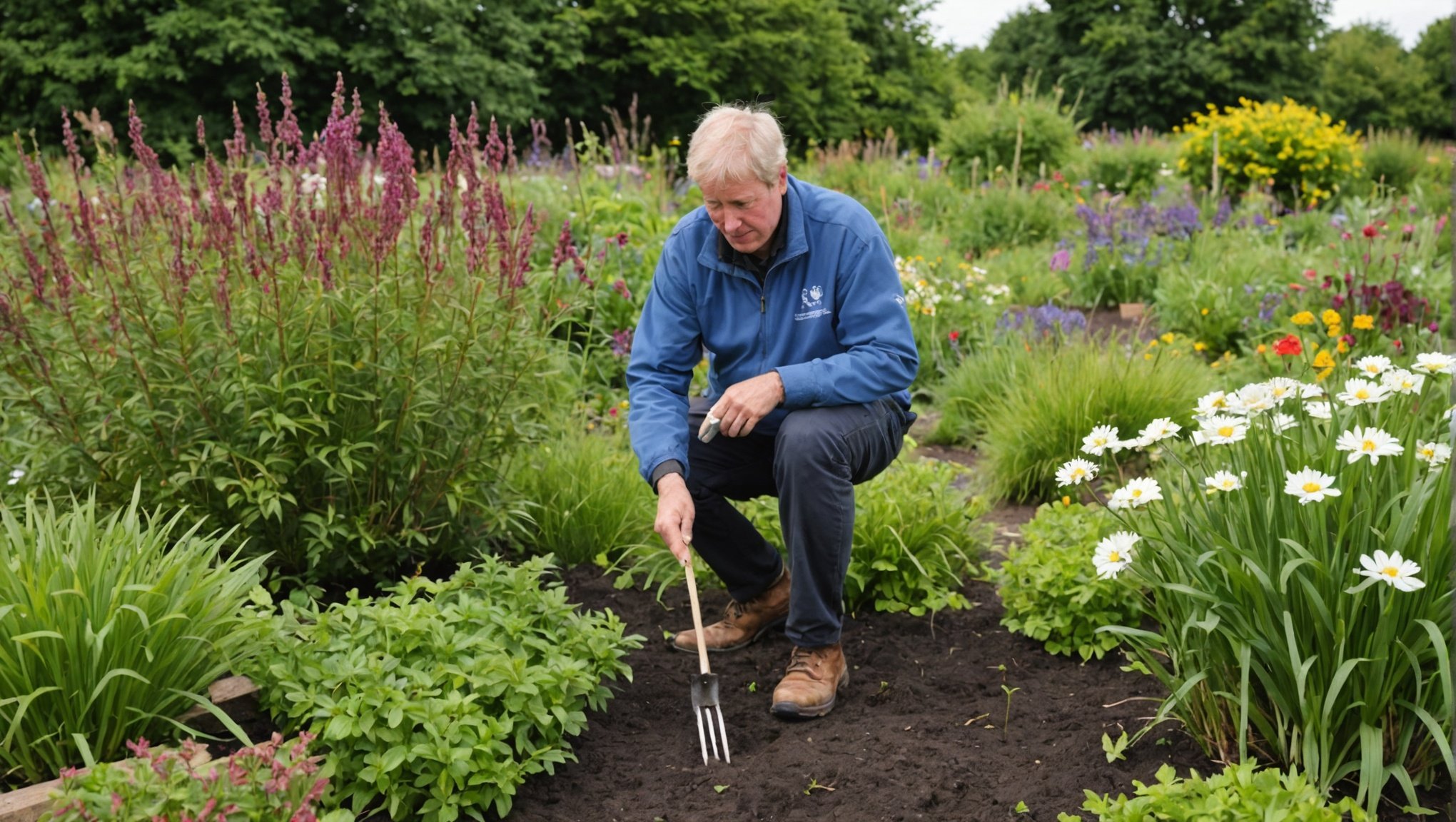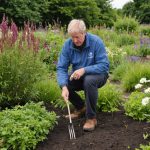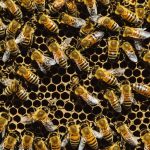Gardeners across the UK hold a unique power to shape the future of our native plant species. By cultivating diverse ecosystems in their own backyards, they can combat habitat loss and promote biodiversity. Understanding the significance of native plants in maintaining ecological balance is essential. This guide highlights practical steps and strategies gardeners can take to preserve these vital species, ensuring a thriving environment for generations to come. Empowerment begins with knowledge—let’s explore how every gardener can make a difference.
Importance of Native Plant Species in the UK
Native plant species play a crucial role in maintaining the ecological balance in the UK. These plants have evolved over thousands of years, adapting to the local climate and soil conditions, making them essential for native plant conservation efforts. They provide habitat and food for a wide range of local wildlife, including birds, insects, and mammals, thus supporting the biodiversity of the region.
Avez-vous vu cela : Eco-Friendly Boating: Strategies for UK Owners to Protect Freshwater Ecosystems and Aquatic Life
The significance of biodiversity cannot be overstated. It ensures ecosystem productivity and stability, allowing for a variety of species to thrive. When native plant species are preserved, they contribute to the health of the ecosystem by supporting pollinators, which in turn benefits agriculture and food production.
Moreover, native plants are integral to sustainable gardening practices. They require less water and fertilisers compared to non-native species, reducing the environmental impact of gardening. By incorporating native species into gardens, individuals can create wildlife-friendly spaces, promoting biodiversity and contributing to native plant conservation.
Lire également : The Impact of the UK”s Neonicotinoid Ban on Bee Populations and Agricultural Practices
In summary, the ecological importance of native plant species is profound. They support local wildlife, enhance biodiversity, and facilitate sustainable practices, making their conservation vital for the UK’s natural heritage.
Responsibilities of UK Gardeners in Conservation
Gardeners in the UK hold a significant role in the preservation of native plant species. By recognising their responsibilities, gardeners can contribute meaningfully to conservation efforts. Understanding the importance of their actions is the first step towards effective participation.
Active participation in conservation begins with selecting native plants for gardens. This choice supports local ecosystems and reduces reliance on additional resources like water and fertilisers. Gardeners should also focus on creating habitats that cater to the needs of local wildlife, promoting biodiversity.
Practical steps include:
- Educating oneself on native species and their benefits.
- Avoiding invasive plant species that may threaten local flora.
- Engaging in sustainable gardening practices, such as composting and reducing chemical use.
Community involvement amplifies the impact of individual efforts. By collaborating with local conservation groups and participating in community gardening projects, gardeners can share knowledge and resources, fostering a collective commitment to conservation. Through workshops and events, communities can raise awareness and inspire others to join the cause.
Ultimately, by embracing their responsibilities, UK gardeners can play a pivotal role in preserving native plant species, ensuring the sustainability of local ecosystems for future generations.
Practical Tips for Cultivating Native Plants
Cultivating native plants in your garden can be a rewarding experience, both for you and the local ecosystem. Selecting appropriate native plants is crucial for creating a thriving garden. Consider the specific conditions of your garden environment, such as soil type, sunlight exposure, and moisture levels, to choose plants that will flourish naturally.
Planting Strategies
When it comes to planting strategies, start by grouping plants with similar needs together. This approach simplifies care and maintenance, allowing you to manage water and nutrient requirements more efficiently. Gardening tips suggest using native plant species that are well-adapted to your area, as they require less intervention and are more resilient to local pests and diseases.
Seasonal Care and Maintenance
Seasonal care is essential for maintaining the health of native plants. In spring, focus on soil preparation and planting new species. Summer requires regular watering, especially during dry spells, while autumn is ideal for mulching and pruning. Winter care involves protecting delicate plants from frost and ensuring proper drainage to prevent root rot.
By following these gardening tips and planting strategies, you can cultivate a vibrant garden that supports local wildlife and contributes to the conservation of native plant species.
Highlighting Key Native Plant Species
Understanding native plant species is essential for enhancing biodiversity in UK gardens. These plants not only support local wildlife but also offer unique benefits to the ecosystem.
Popular Native Plants for UK Gardens
Among the most popular native plants are the Bluebell (Hyacinthoides non-scripta), known for its vibrant spring blooms, and the Hawthorn (Crataegus monogyna), which provides food and shelter for birds. The Foxglove (Digitalis purpurea) is another favourite, attracting pollinators with its striking flowers.
Unique Benefits
Each of these species contributes uniquely to biodiversity enhancement. Bluebells, for instance, thrive in woodland areas, supporting shade-loving insects. Hawthorn’s dense foliage offers nesting sites for birds, while Foxgloves’ tubular flowers are ideal for bees. These species require minimal maintenance, aligning with sustainable gardening practices.
Sourcing Native Plants and Seeds
To incorporate these species into your garden, sourcing from reputable nurseries is vital. Many UK-based nurseries specialise in native plants, offering a range of species suited to various garden conditions. Additionally, organisations like the Royal Horticultural Society provide resources and advice on native plant cultivation, ensuring gardeners can make informed choices.
Environmental Impact of Preserving Native Plants
Preserving native plants has a profound environmental impact, enhancing ecosystem services and promoting sustainability. These plants are pivotal in maintaining soil health. Their deep root systems prevent erosion and improve soil structure, facilitating water infiltration and retention. This natural water conservation reduces the need for artificial irrigation, promoting sustainable land management.
Native plants also play a crucial role in combating climate change. They sequester carbon efficiently, capturing and storing atmospheric CO2. This process mitigates the greenhouse effect, contributing to climate regulation. By maintaining native vegetation, we enhance the landscape’s resilience against climate fluctuations.
Furthermore, native plants provide invaluable benefits to local wildlife habitats. They offer food and shelter to a myriad of species, from pollinators like bees and butterflies to larger fauna. This support of biodiversity ensures the stability and productivity of ecosystems. Native plants, being well-adapted to local conditions, require fewer resources, reducing the ecological footprint of gardening and landscaping efforts.
Incorporating native species into our surroundings fosters a harmonious relationship with nature, ensuring the longevity of both natural and human environments. By understanding and valuing these contributions, we can make informed decisions that benefit both the planet and its inhabitants.
Case Studies: Successful Native Plant Initiatives
Exploring case studies reveals how UK gardeners and communities have effectively integrated native plants into their landscapes, yielding positive results for local ecosystems.
Success Stories in Native Plant Integration
One notable success story is the transformation of a public park in Manchester. Local volunteers collaborated to replace non-native species with native flora, resulting in increased biodiversity. The park now serves as a habitat for various pollinators and birds, showcasing the potential of community gardening efforts in enhancing local ecosystems.
Similarly, a community in Bristol undertook a project to convert vacant lots into native plant gardens. This initiative not only beautified the area but also educated residents on the importance of native species. The success of these community gardening projects highlights the power of collective action in promoting conservation.
Lessons Learned from Conservation Projects
These initiatives underscore the importance of community involvement and education. By sharing knowledge and resources, communities can amplify their impact on native plant conservation. Key lessons include the need for ongoing maintenance and the benefits of engaging local schools and organisations in conservation efforts. Such projects demonstrate the practical benefits of native plant integration, inspiring others to embark on similar journeys.
Resources for Gardeners and Conservationists
Gardeners and conservationists in the UK have access to a wealth of gardening resources and educational materials that support native plant conservation efforts. Various conservation organizations are dedicated to preserving the UK’s natural flora, offering invaluable guidance and support.
Organizations and Educational Materials
Several organizations, such as the Royal Horticultural Society and Plantlife, focus on native plant conservation. They provide educational resources such as workshops, webinars, and printed guides, helping gardeners make informed choices. These resources cover topics from plant identification to sustainable gardening practices.
Online Platforms and Forums
The digital age has ushered in numerous online platforms and forums where gardeners can share knowledge and experiences. Websites like Gardeners’ World and BBC Gardening offer interactive forums, allowing users to exchange tips and advice. These platforms are instrumental in fostering a community of like-minded individuals committed to conservation.
By leveraging these resources, gardeners and conservationists can enhance their understanding and contribute more effectively to the preservation of native plant species. Engaging with these organizations and platforms empowers individuals to make a tangible impact on the UK’s ecological landscape.
The Future of Gardening and Native Plant Conservation
In the future of gardening, emerging trends are increasingly focusing on the integration of native plants. This shift not only supports biodiversity but also aligns with sustainable practices that are gaining traction. Gardeners are becoming pivotal in environmental stewardship, embracing roles that extend beyond traditional gardening tasks. They are now seen as custodians of local ecosystems, actively participating in conservation efforts.
Trends in Conservation
Recent trends in conservation highlight the importance of native plant species. These trends advocate for the use of plants that are well-adapted to local conditions, reducing the need for excessive resources. This approach not only conserves water and soil but also supports pollinators and local wildlife, enhancing ecosystem health.
Community Engagement and Youth Involvement
Engaging younger generations in conservation efforts is crucial for the sustained success of these initiatives. Strategies include educational programs that focus on the environmental benefits of native plants and hands-on gardening projects. By involving schools and youth groups, communities can foster a sense of responsibility and passion for conservation among young people. This engagement ensures that the future of gardening remains vibrant and aligned with ecological priorities.
How to Advocate for Native Plant Conservation
Advocacy for native plant conservation is crucial in safeguarding biodiversity. Gardeners can play a pivotal role in raising community awareness about the importance of native plants. Hosting workshops or informational sessions at local community centres can educate others on the ecological benefits of native species. Sharing personal experiences and success stories can inspire others to adopt similar practices.
Engaging with local policymakers is another effective strategy. By participating in town hall meetings or writing to local government officials, gardeners can highlight the importance of conservation policies that support the preservation of native plants. Advocating for policies that promote sustainable landscaping and discourage the use of invasive species can lead to significant environmental benefits.
Building a network of advocates is essential for amplifying efforts in native plant preservation. Joining local gardening clubs or conservation groups can connect like-minded individuals who share a passion for biodiversity. These networks can organise community events, such as native plant fairs or garden tours, to further spread awareness.
Through advocacy, community awareness, and collaboration with policymakers, gardeners can make a meaningful impact on native plant conservation. By fostering a culture of conservation, individuals can contribute to the preservation of the UK’s natural heritage.











